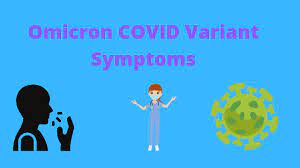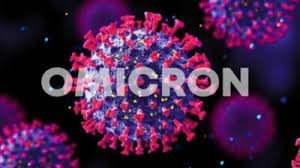Omicron symptoms mild with or without vaccination says South African physician
Two are three days are usually enough to alleviate Omicron symptoms in vaccinated people
“It’s totally different from the Delta,” Dr. Angelique Coetzee told the media. She said that these patients aren’t displaying the same loss of taste and smell, need for supplemental oxygen or elevated pulse rate that doctors noted with Delta patients.
“It’s very
much like a cold or flu type of symptoms,” she said, adding that patients are
reporting headaches and body aches, and a slight sore throat.
“They don’t
have a severe cough and they don’t have a running or blocked nose as you would
see with an upper respiratory tract infection,” she said.
COVID-19
patients infected by the Omicron variant, whether vaccinated or not, usually
experience mild symptoms, though in the unvaccinated, they are more
intense and last longer, said Dr Angelique Coetzee, who is among the physicians
who first flagged the highly mutated strain in South Africa.
Among the
vaccinated, two or three days are usually enough for alleviation of symptoms,
she added.
“There’s both protection and transmission.
Protection from disease is through vaccination. Mitigating transmission is
through physical measures like masks for airborne transmission, good
ventilation, distancing, avoiding congregations. That really is that simple.”
“We also know you can test on rapid tests between one and five days of symptoms. In the primary healthcare set-up, most of the cases are mild, no need for hospitalisation. No oxygen needed for majority patients.
In the beginning of
any wave, children and younger people are the first to be affected,” she added.
“As the wave progresses, more elderly, people with comorbidities, start getting
affected. When that happens, we will know exactly how many severe cases there
are.”
Overall, patients appear to be less sick than those in previous waves of COVID-19, Coetzee said, although generally speaking, severe illness seems to lag a few weeks behind infections, and the data is very new.
These patients tended to be younger than in previous waves, with more than 80 per cent of them under the age of 50.
Most of
these patients didn’t need oxygen, the researchers wrote — in contrast to
previous waves at that hospital. And many of them originally went to the
hospital for other reasons, and then tested positive for COVID-19 later.
“Thus far, it does not look like there’s a
great degree of severity to it,” Dr. Anthony Fauci, President Joe Biden’s chief
medical adviser, told CNN on Sunday. “But we have really got to be careful before
we make any determinations that it is less severe or it really doesn’t cause
any severe illness, comparable to Delta.”
Most common symptoms
Most common symptoms for the new COVID Variant “Omicron” are fever, cough, tiredness, loss of taste or smell.
Less
common symptoms
Less common
symptoms for the new COVID Variant “Omicron” are sore throat, headache, aches,
pains, diarrhoea, a rash on skin, discolouration of fingers or toes
red or
irritated eyes.
Serious
symptoms
Serious
symptoms for the new COVID Variant “Omicron” are difficulty breathing or
shortness of breath, loss of speech or mobility, or confusion or chest pain.
If anyone
has any of these symptoms then he/she should urgently take the COVID test.
After the
detection of a new variant of COVID, the WHO has advised the country and every
individual to follow the SOPs (Standard Operating Protocols).
Rukhsana Manzoor deputy Editor













Post a Comment